How to use ChatGPT for QA testing? Discover how integrating Generative Artificial Intelligence into your QA processes can revolutionize software testing. Our innovative methods at Abstracta harness its power to streamline workflows, enhance test coverage, and boost overall software quality.
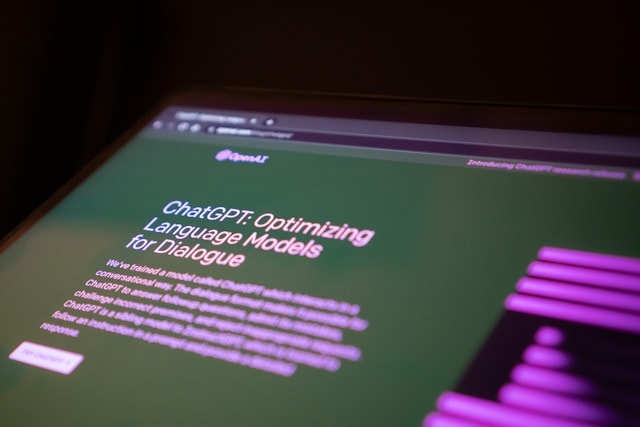

When it comes to creating quality software, staying ahead of the competition requires leveraging the latest technologies and tools.
In this article, we explore how Gen AI can enhance your software testing processes and elevate your software quality, and share our top use cases at Abstracta.
Our experience showcases the potential of this powerful technology in transforming testing practices. If you are interested in any of our tools, don’t hesitate to reach out and ask for a demo.
Explore our tailored AI Software Development & Copilots service!
Generative AI in QA
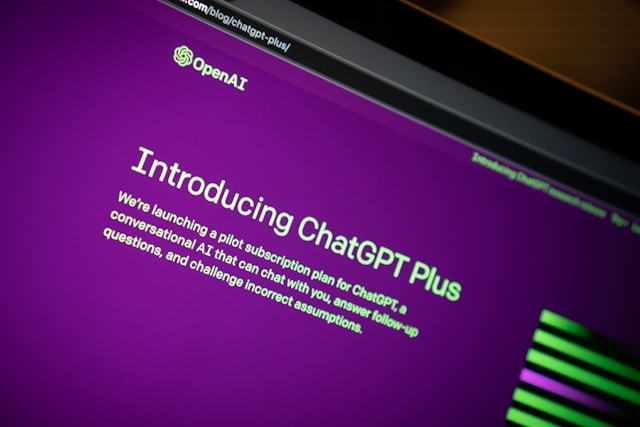

Generative AI, particularly models like GPT4o (included in ChatGPT from OpenAI), has opened new frontiers in QA testing. This technology uses natural language or image processing to understand and generate human-like text based on the input it receives. In the context of software testing, this capability can be leveraged to create more efficient and effective testing processes.
ChatGPT can help automate repetitive tasks, generate realistic test data, and even simulate user interactions. This not only saves time but also enhances the accuracy and comprehensiveness of the testing process. By integrating ChatGPT into QA, companies can achieve faster turnaround times and more reliable software releases.
In this article, when we refer to ChatGPT, it’s essentially an analogy for the GPT-4o model. This clarification is key, as the GPT-4o model is the source of the benefits we’re highlighting. Access to this transformative model is available through ChatGPT or, for a more business-centric approach, through PrivateGPT.
Developed by our team at Abstracta, PrivateGPT provides businesses with greater control over their data and cost efficiencies. As we progress, we’ll delve into more details about this tool, illustrating its potential to revolutionize QA processes and significantly uplift software quality.
Benefits of ChatGPT for QA Testing
The benefits of using ChatGPT for QA testing are numerous.
- Simplifies Test Case Generation: ChatGPT helps to automate test case generation, a traditionally time-consuming task requiring significant human effort. This platform can quickly generate multiple test cases based on predefined criteria, enhancing comprehensive test coverage.
- Improves Test Data Generation: It assists in creating synthetic test data that closely mimics real-world scenarios, aiding testers in identifying potential issues before they affect users. This expansion in test coverage includes edge cases and scenarios potentially overlooked during manual testing.
- Streamlines the Testing Process: ChatGPT can manage various tasks from generating test scripts to analyzing results, and handling tasks that typically demand substantial manual effort. This lightens the testers’ workload and reduces the risk of human error, resulting in more dependable software quality.
PrivateGPT and Citizen Developer Copilot: Our Innovative AI Solutions
At Abstracta, we continuously innovate to enhance our software testing and development processes. Our two flagship AI solutions, PrivateGPT and Citizen Developer Copilot exemplify our commitment to leveraging generative AI for superior quality assurance and development outcomes.
PrivateGPT: Pioneering Secure and Efficient AI Integration
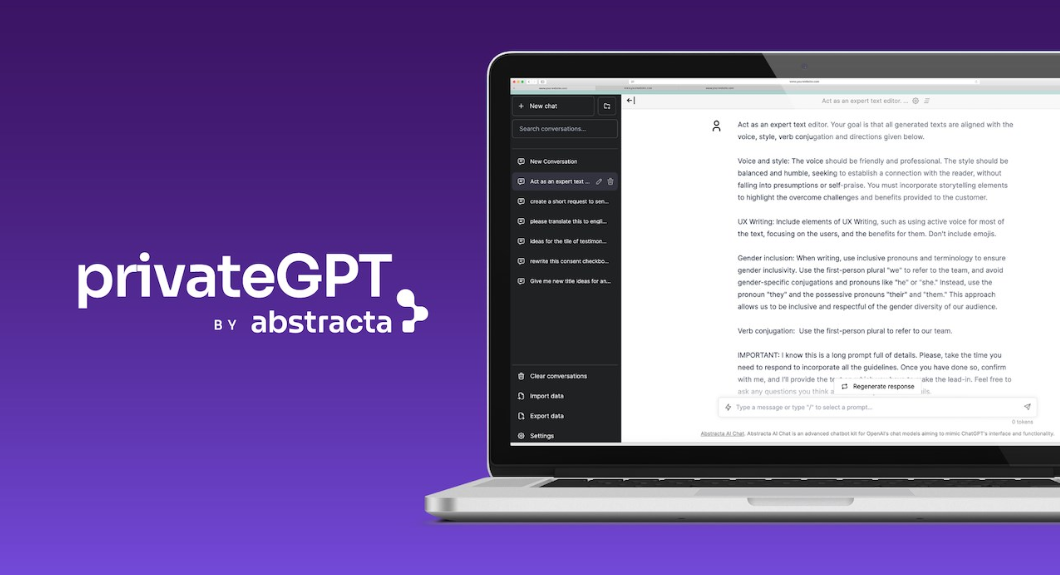

At Abstracta, we developed PrivateGPT, a self-hosted and secure AI chatbot system, analogous to ChatGPT, to accelerate and safeguard our experimentation processes.
PrivateGPT allows us to integrate GPT models seamlessly into our operations while ensuring data privacy and control. By leveraging PrivateGPT, we can test various AI models like Llama v2 and Vicuna, manage costs effectively, and facilitate prompt sharing across teams.
This platform has revolutionized our approach to AI, enabling faster, safer, and more collaborative innovation.
Using private-gpt your team can chat safely, share prompts and assistants using any LLMs using your own account, and control the budget.
Check out PrivateGPT on Azure Marketplace!
Citizen Developer Copilot: Empowering Testers, Developers and Analysts
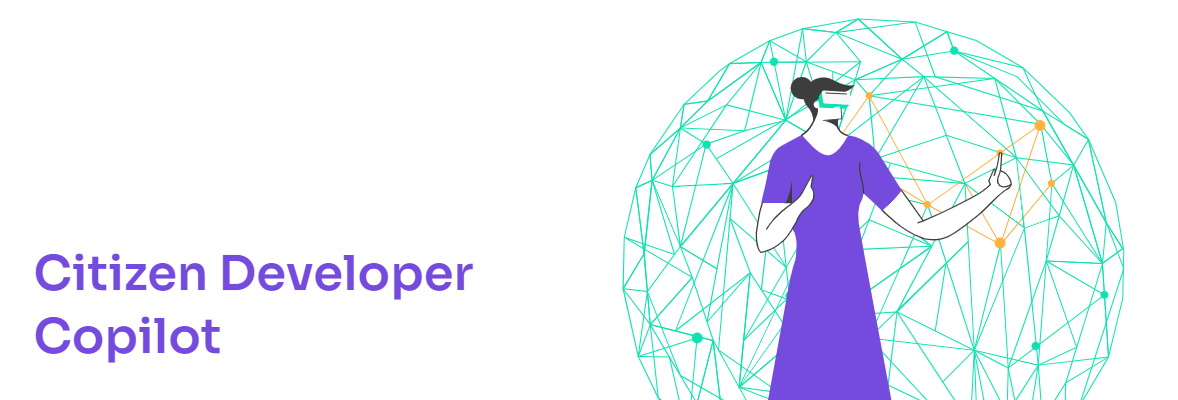

At Abstracta, we created Citizen Developer Copilot, an AI platform designed to enhance productivity and quality for analysts, testers, and developers. You can speak with this tool in natural language as you do with ChatGPT or PrivateGPT.
Citizen Developer Copilot addresses significant challenges in understanding complex systems, bridging technical skills gaps, and managing knowledge efficiently. It allows users to interact with software systems using natural language, translating inputs into SQL queries, REST/SOAP protocols, and AS400 commands.
This simplifies complex tasks, making technical processes accessible to all team members and enabling seamless communication with mainframes, APIs, and databases.
Moreover, the platform revolutionizes documentation interaction by using semantic search and LLM capabilities to provide relevant information quickly. Users can navigate documentation with ease, ensuring they have the right information when needed. It includes features like user authentication, prompt and query management, audio communication, and usage tracking, enhancing security, efficiency, and user experience.
On the whole, it transforms how teams interact with technology, streamlining development cycles and improving overall software quality.
One notable customized implementation of this tool is with Bantotal, a leading digital banking solution in Latin America. We invite you to check our Case Study.
Citizen Developer Copilot is available for demo requests, offering organizations a powerful tool to enhance development processes with intuitive natural language prompts.
Contact us to learn how you can integrate Citizen Developer Copilot into your workflows.
Real-Life Examples: How We Boost Software Testing With Gen AI


In this section, we will delve into how at Abstracta we leverage generative AI to enhance our software testing and development processes, particularly through Private GPT and Citizen Developer Copilot.
From generating API tests to enhancing reports and speeding up SQL generation, we will showcase practical examples of how we use Gen AI for QA testing to improve efficiency, accuracy, and overall software quality.
Our real-world applications demonstrate the transformative potential of AI in QA, providing insights into how these technologies can be implemented in your own organization.
1. Leveraging PrivateGPT for API Testing
Generating robust API tests is essential for comprehensive test coverage. At Abstracta, we utilize PrivateGPT to create API tests based on heuristics and predefined prompts. This strategy enables thorough test cases that cover a wide array of scenarios, enhancing our ability to identify potential defects early in the software development process.
Stay tuned, we’ll soon publish an article with prompts to help you tackle this challenge!
2. Improving Technical Report Generation
Creating consistent and objective technical reports is crucial for maintaining transparency and project visibility with our clients. At Abstracta, we use Private GPT to enhance these reports, ensuring that they are comprehensive and constructive.
This has helped us optimize our reporting process and provide a more consistent experience for our clients.
We have built precise prompts for each section and shared them with Abstracta’s leaders so that they can leverage them when writing reports. We have a clear process in which the reports are reviewed and manually edited by our specialists.
By improving technical report generation, we can ensure that our clients receive detailed and accurate reports on the status of their projects. This helps in building trust and maintaining strong relationships with our clients.
This way, we’ve managed to optimize all the semi-annual and closing reports, making them more constructive to enhance our relationships while still being objective. This method has streamlined our reporting process, providing clients with a uniform and informative experience.
3. Enhancing System Documentation


Comprehensive system documentation is crucial for QA professionals. At Abstracta, our Citizen Developer Copilot assists us in understanding up-to-date documentation based on observability data.
This enables testers, developers, and analysts to have the information needed to perform their tasks effectively, reducing misunderstandings and improving the overall testing process.
Consequently, we reduced the time to obtain key information from days to minutes.
4. Speeding Up SQL Generation
SQL query generation is a frequent requirement in testing. At Abstracta, we use Citizen Developer Copilot and PrivateGPT to create SQL queries from text inputs swiftly and accurately.
This approach reduces the manual effort involved, allowing our testing teams to focus on more critical aspects of test execution and data analysis.
As a result, we achieved a 5x increase in SQL generation.
This is a very simple example:
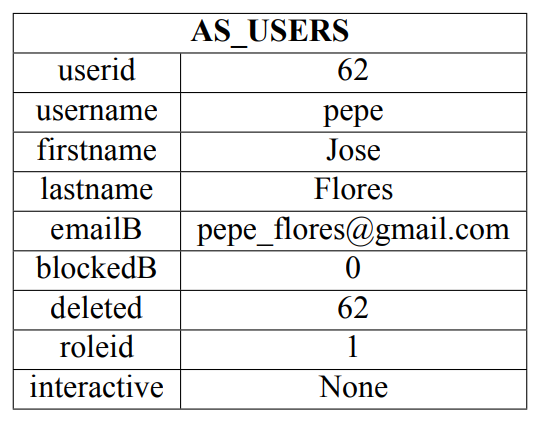

The test can prompt: “What is the email of Pepe”?
And the model can generate this SQL: SELECT email FROM as_user WHERE username = LIKE ” %pepe%”;
5. Efficient Knowledge Management
Effective knowledge management is essential for quick access to information.
Our team utilizes Citizen Developer Copilot, enhanced with a vector database storage system, to store and retrieve vital documents, such as user manuals and project documentation. This innovative system allows for conversational interaction with the information by utilizing Retrieval-Augmented Generation (RAG), significantly enhancing our ability to quickly access necessary data.
Therefore, we doubled the speed of finding relevant information.
6. Boosting User Story Creation
Effective user stories are critical in software development. By using a series of shared prompts available on PrivateGPT for QA testing, it is possible to revolutionize the creation of detailed user stories.
While we have created it, we are now experimenting with its use. We have verified that it is possible to achieve a 1400% increase in productivity and are eager to see its full benefits in action. It is possible to reduce the task of creating user stories for a project from 3 weeks to just 1 day.
7. Facilitating iSeries Command Execution
Managing, validating, or inputting information on iSeries/AS400 systems can be challenging due to the specialized skill set required for AS400 command execution. To help bridge this gap, we’ve utilized Citizen Developer Copilot to develop a tool that simplifies these tasks.
This assistant tool enables easier execution of iSeries commands, making the process more accessible for teams regardless of their previous experience with these systems. By democratizing access to AS400 command execution, we aim to mitigate the impact of skills scarcity on operational efficiency.
This initiative has led to a threefold increase in operational speed.
8. Transforming Test Automation


Leveraging GitHub Copilot, we’ve developed a Copilot tool specifically for generating automation test scripts using Auto PlayWright. This initiative has produced a diverse range of outcomes, demonstrating the potential and variability inherent in automating test processes.
The mixed results highlight both the challenges and successes of integrating AI into test automation, offering valuable insights for further innovation.
9. Analyzing Error Logs
Effective error log analysis is crucial for identifying defects. Adopting PrivateGPT, we’ve tailored specific prompts to decipher error logs from diverse sources efficiently. This reduces the manual effort involved in log analysis and speeds up the testing process.
By streamlining the process of interpreting complex logs, we not only accelerate troubleshooting but also democratize analytical skills among testers. This development empowers our team to quickly identify and address issues, fostering a more agile and efficient testing environment.
This method has tripled the speed at which logs are understood.
10. Designing Test Case Tables
Creating test case tables is essential for organized testing. Utilizing PrivateGPT, we’ve engineered specific prompts to facilitate the creation of test case tables directly from acceptance criteria.
By implementing specific prompts for prompt generation, we accelerated the development of test scenarios and enabled them to closely align with the defined acceptance criteria. This innovation enhances the quality and relevance of our test cases, making possible comprehensive coverage and efficient testing.
This approach has tripled the speed of test generation.
11. Generating Test Data
Generating precise and relevant test data quickly is crucial in software testing. By employing PrivateGPT and creating ad-hoc prompts tailored to specific requirements and established formats, we’ve streamlined our process.
On the whole, this method, combined with SQL generation, has increased the speed of our test data generation by up to 4 times. The result is not just a considerable reduction in time spent preparing, but also in the creation of test data that more accurately matches the scenarios we aim to assess.
To illustrate it, we’ll share a simple prompt that we have been using: “Generate a table with 10 rows with customer data. Each row with first name, second name, last name, valid email, valid city and state.”
12. Creating Spreadsheet Formulas
Spreadsheet formulas are often needed in testing tasks. At Abstracta, we leverage PrivateGPT to generate these formulas quickly and accurately from text inputs. This reduces the time spent on manual formula creation, allowing testers to focus on more critical testing tasks.
This innovative method has led to a fivefold increase in the speed of creating spreadsheet formulas. The outcome is a dramatic decrease in the time required for setup, coupled with the generation of formulas that accurately serve the intended analytical purposes.
FAQs On Chatgpt for QA Testing


Can ChatGPT Be Used for Testing?
Yes, ChatGPT can be used as a tool in various testing scenarios, especially those that involve natural language understanding, generation, or interaction.
For instance, it can be used to generate test data, create scenarios for chatbot testing, or even write unit tests for code that processes natural language input.
However, its application in testing would primarily be complementary, aiding testers by automating certain tasks or providing insights.
Will ChatGPT Replace QA Engineers?
ChatGPT is unlikely to replace Quality Assurance (QA) engineers. While it can assist in generating test cases, identifying potential testing scenarios, or even spotting grammatical errors in documentation, it does not possess the ability to understand context, make subjective judgments, or replace the nuanced understanding and expertise of human QA engineers.
Instead, ChatGPT can be seen as a tool that can augment the capabilities of QA teams by streamlining certain processes and providing additional support.
Keep learning about this topic in this article.
How to use ChatGPT in Performance Testing?
ChatGPT can be utilized in performance testing by helping to generate test scripts, create user stories for load testing, or simulate user interactions with a system. For example, it can assist in drafting realistic chatbot conversations to test chatbot performance under various conditions.
However, actual performance testing—such as measuring response times, system throughput, or resource utilization under load—requires specialized tools and cannot be directly performed by ChatGPT.
What is The Use of ChatGPT in Software Testing?
ChatGPT can be used in several aspects of software testing, including but not limited to:
- Test Case Generation: Improvising or suggesting scenarios that might not have been considered, thus expanding test coverage.
- Natural Language Processing (NLP) Testing: Serving as a tool to generate or understand natural language inputs and outputs, particularly useful in testing chatbots or conversational interfaces.
- Documentation: Assisting in the creation or review of test documentation, ensuring clarity and completeness.
- Bug Reporting: Helping to draft bug reports or even predict potential failure areas based on the software functionality description.
- User Scenario Simulation: Generating realistic user queries or commands to test how well a system responds to natural language inputs.
In summary, while ChatGPT can significantly contribute to the software testing process by providing assistance in generating content, brainstorming scenarios, and ensuring thorough documentation, it supplements rather than replaces the critical roles played by human testers and QA engineers.
How We Can Help You
Would you like to explore how Generative AI can revolutionize your projects? Feel free to contact us and join us in shaping the future of technology.


Follow us on Linkedin & X to be part of our community!
Recommended for You
Generative AI for Dummies: A Comprehensive Guide for Beginners and Beyond
Browser Copilot, Your AI Assistant Framework
New AI Chatbot: How We Built Our Own ChatGPT to Experiment Faster


Abstracta Team
Related Posts
Browser Copilot, Your AI Assistant Framework
Get to know our open-source revolutionary copilot that integrates AI assistants into your browser, designed to simplify and enrich your interaction with various web applications. At Abstracta, we can help you, in partnership with Microsoft, to create and implement customized solutions for your business. In…
Testing Applications Powered by Generative Artificial Intelligence
Would you like to delve into how to test applications powered by Generative Artificial Intelligence (GenAI)? We invite you to explore this topic, discover the upcoming opportunities and challenges, and understand how all this can add value to your projects. With the widespread use of…
Leave a Reply Cancel reply
Search
Contents








